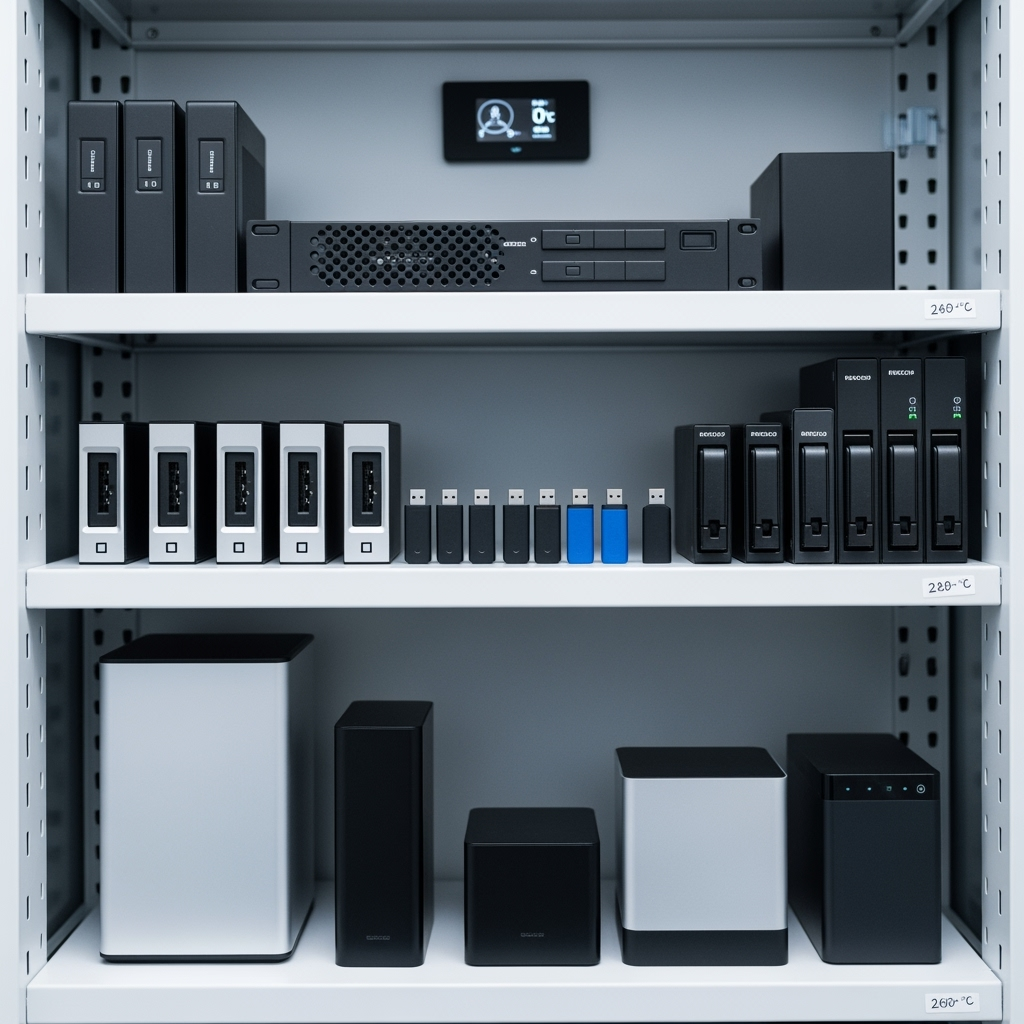
Understanding the Importance of Proper Storage for Digital Devices
In our increasingly digital world, protecting electronic storage devices has become crucial for both personal and business data security. Whether you’re storing external hard drives, SSDs, USB drives, or backup tapes, the right storage environment can mean the difference between preserved memories and lost data. This comprehensive guide will help you understand why climate-controlled storage is essential for your digital devices and how to properly maintain them.
Why Climate Control Matters for Digital Storage
Electronic storage devices are sensitive to environmental conditions that can significantly impact their longevity and reliability:
- Temperature fluctuations can cause component expansion and contraction
- Excessive humidity can lead to corrosion and electrical shorts
- Extreme heat can degrade storage media and reduce device lifespan
- Static electricity in dry conditions can damage sensitive components
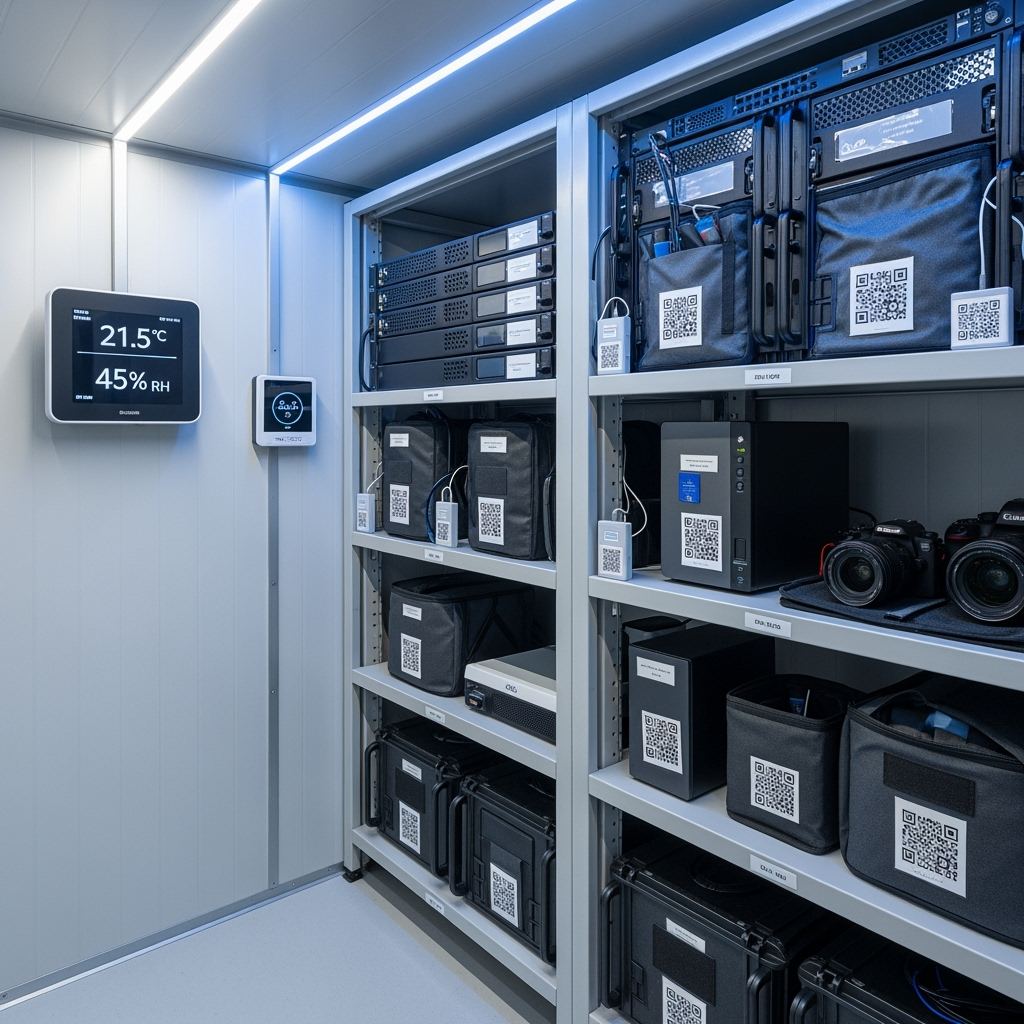
Optimal Storage Conditions for Digital Devices
To maximize the lifespan and reliability of your digital storage devices, maintain these ideal conditions:
- Temperature: 65-75°F (18-24°C)
- Relative Humidity: 45-55%
- Clean, dust-free environment
- Protection from direct sunlight
- Stable power supply for powered storage systems
Organizing Your Digital Storage Space
Proper organization is key to maintaining and accessing your digital storage devices:
- Label all devices clearly with contents and dates
- Use anti-static storage containers or bags
- Create an inventory system for easy access
- Store devices vertically to save space
- Keep backup devices separate from primaries
Best Practices for Long-Term Storage
Follow these guidelines to ensure your digital data remains secure:
- Regularly check devices for signs of degradation
- Rotate stored devices every 6-12 months
- Keep multiple copies of critical data
- Use protective cases or padding
- Maintain proper ventilation
When to Choose Climate-Controlled Storage
Consider climate-controlled storage for your digital devices when:
- Storing valuable or irreplaceable data
- Planning long-term storage (over 6 months)
- Living in areas with extreme temperature variations
- Storing professional or business-critical information
- Maintaining archive or backup systems
Security Considerations
Protect your digital assets with these security measures:
- Choose facilities with 24/7 surveillance
- Use secure, lockable storage containers
- Maintain an offsite inventory list
- Consider encryption for sensitive data
- Regular security audits and updates
Cost-Effective Storage Solutions
Maximize your storage investment with these tips:
- Consolidate data to reduce device count
- Choose appropriate storage unit sizes
- Share space with trusted partners
- Consider long-term storage discounts
- Regular maintenance to prevent costly repairs
Accessing and Maintaining Stored Devices
Develop a routine for maintaining stored digital devices:
- Schedule regular device checks
- Document any changes or updates
- Test devices before returning to storage
- Clean and inspect storage areas
- Update inventory records
Professional Support and Resources
Don’t hesitate to seek professional assistance for:
- Initial storage setup and organization
- Environmental monitoring systems
- Security system integration
- Data recovery services
- Storage unit maintenance
Conclusion
Protecting your digital storage devices through climate-controlled storage is an investment in your data’s future. By following these guidelines and best practices, you can ensure your valuable digital assets remain safe and accessible for years to come. Remember, the small effort invested in proper storage today can prevent significant data loss tomorrow.




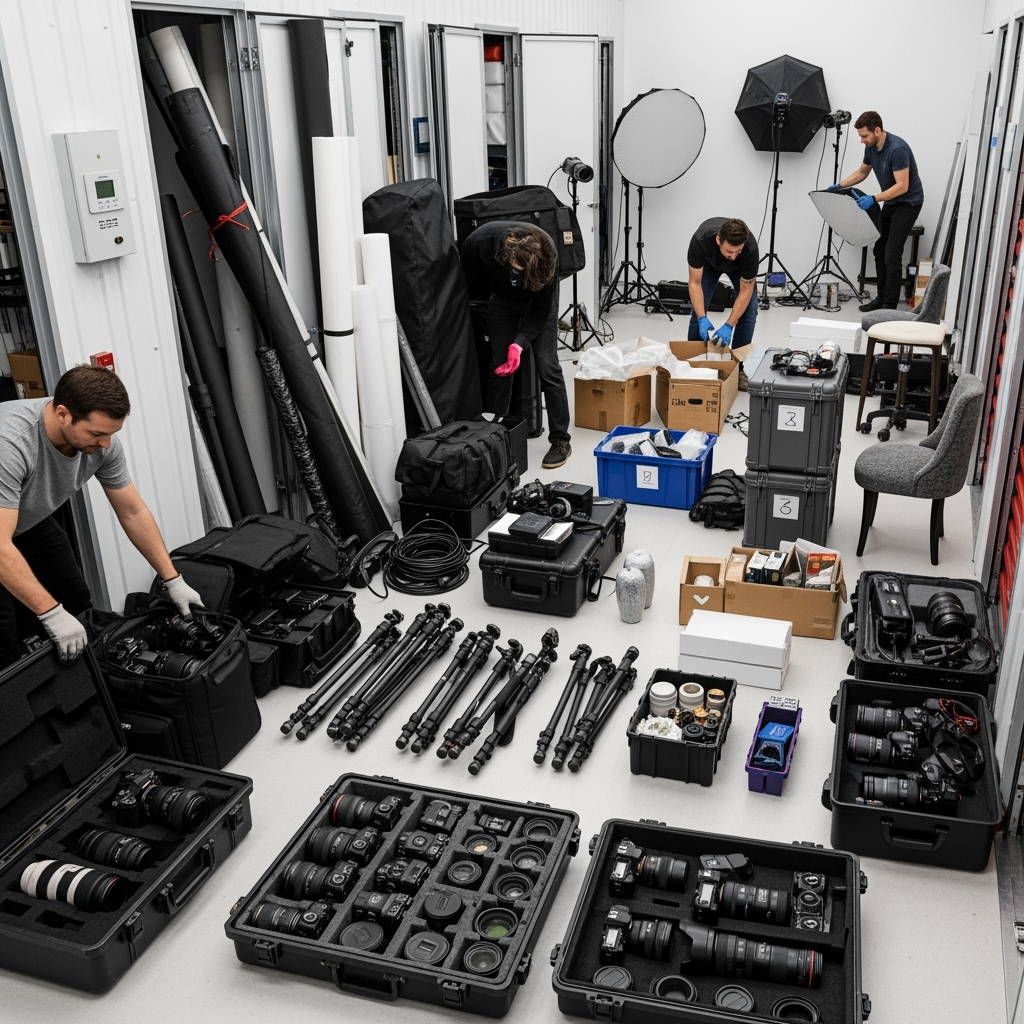
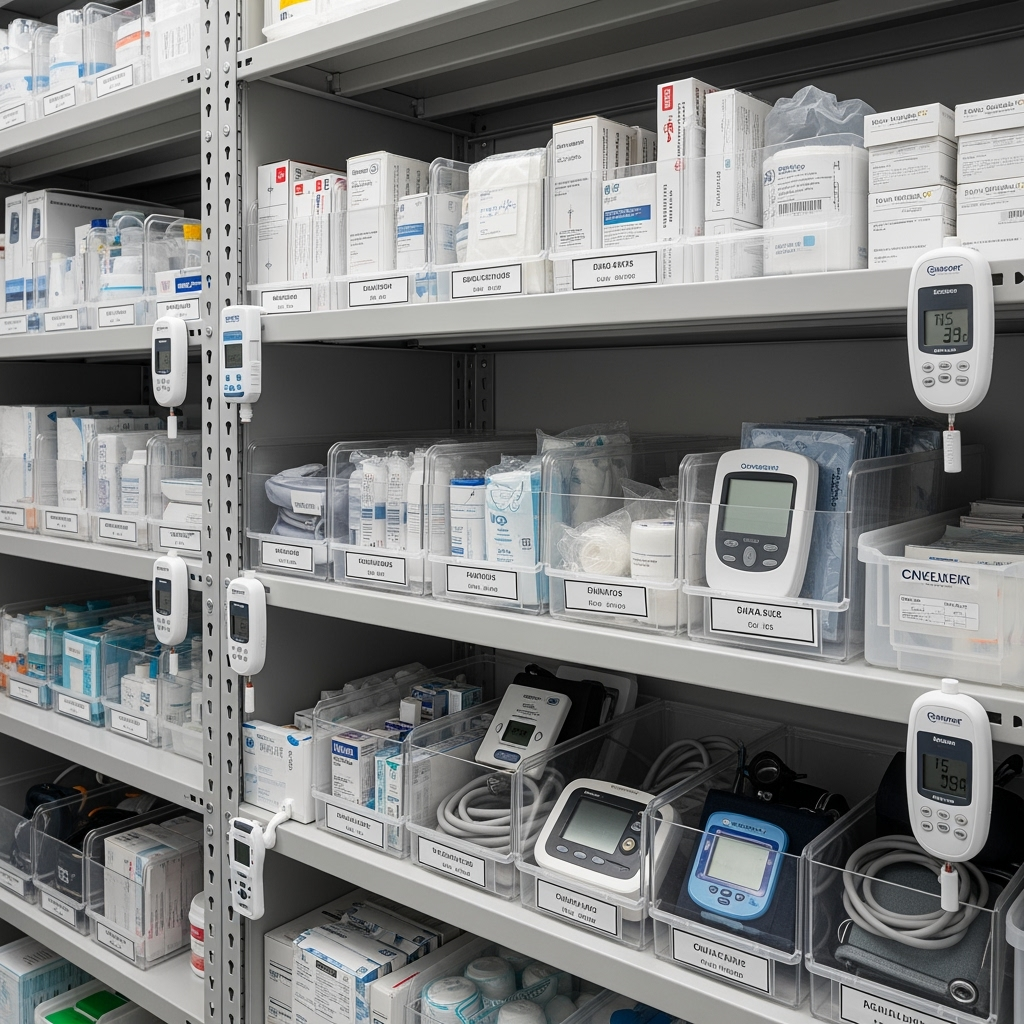
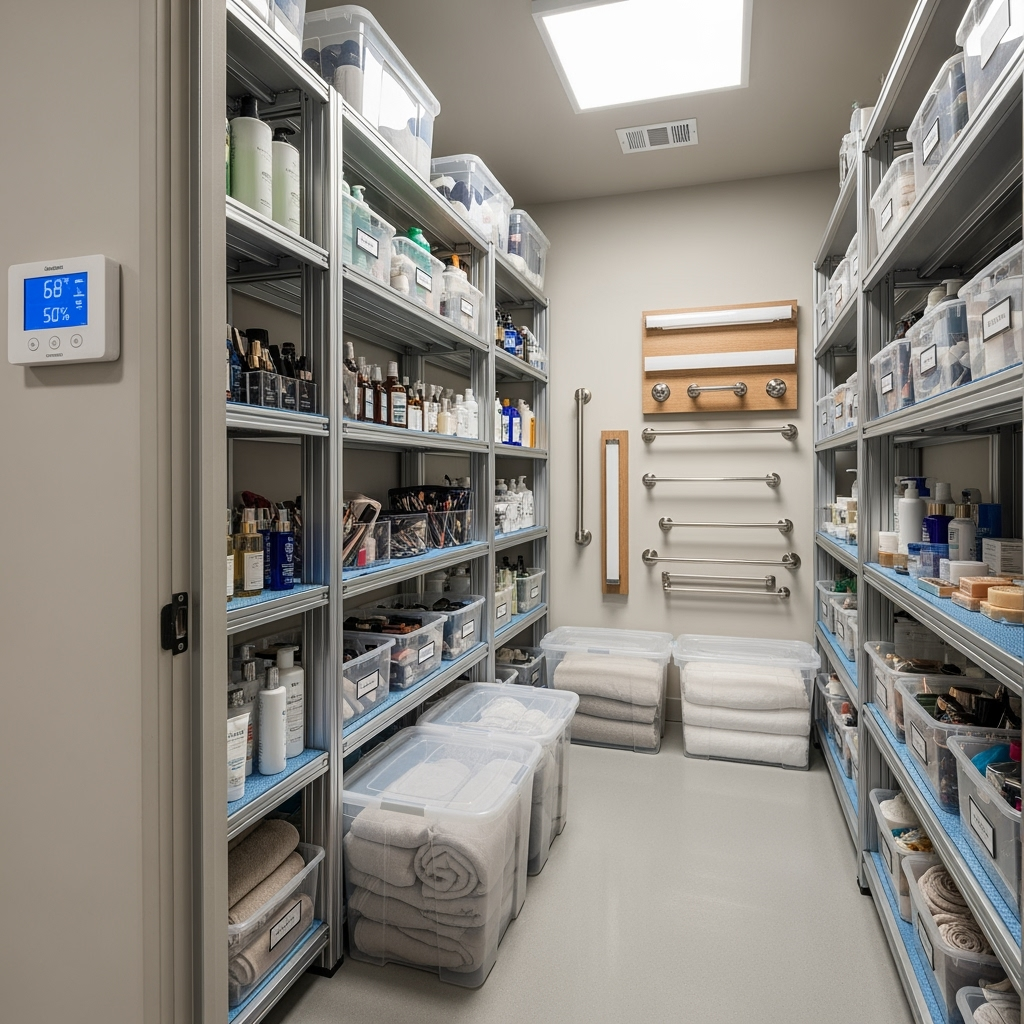
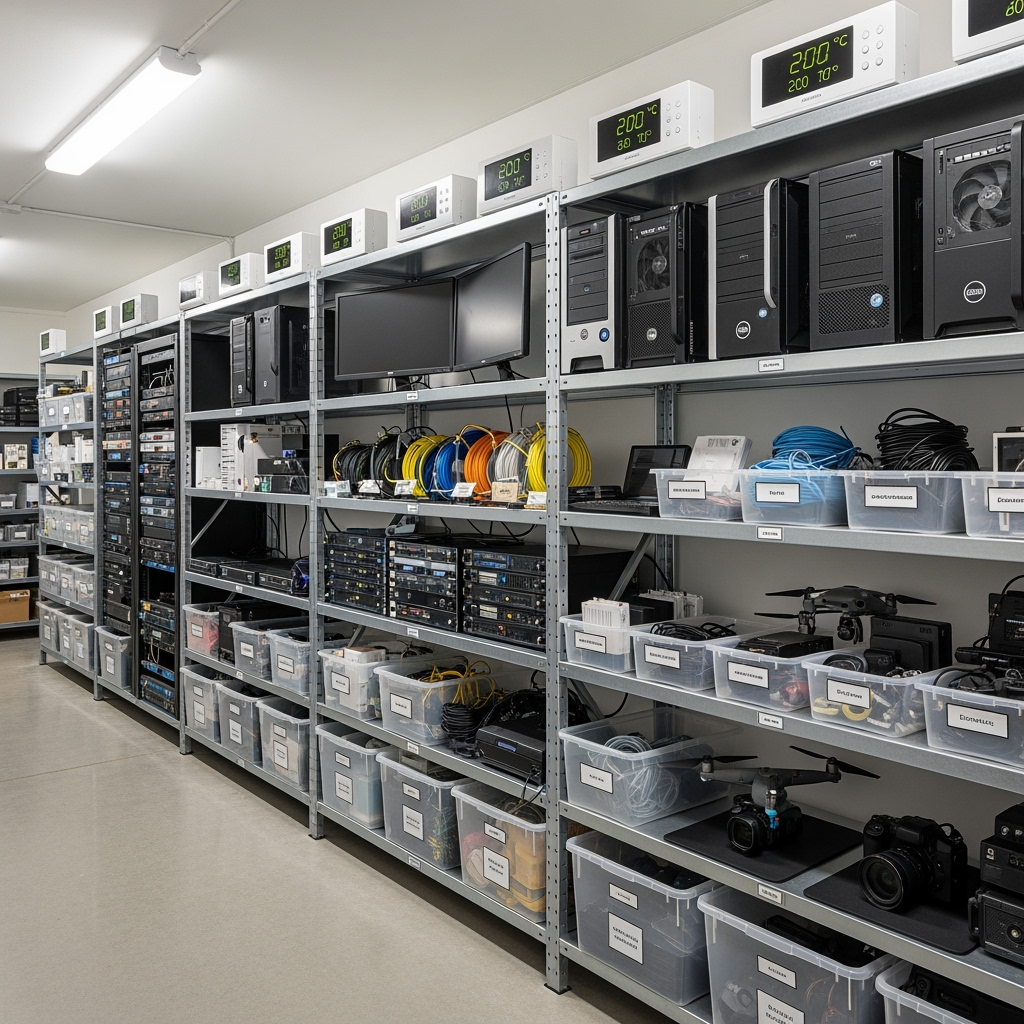

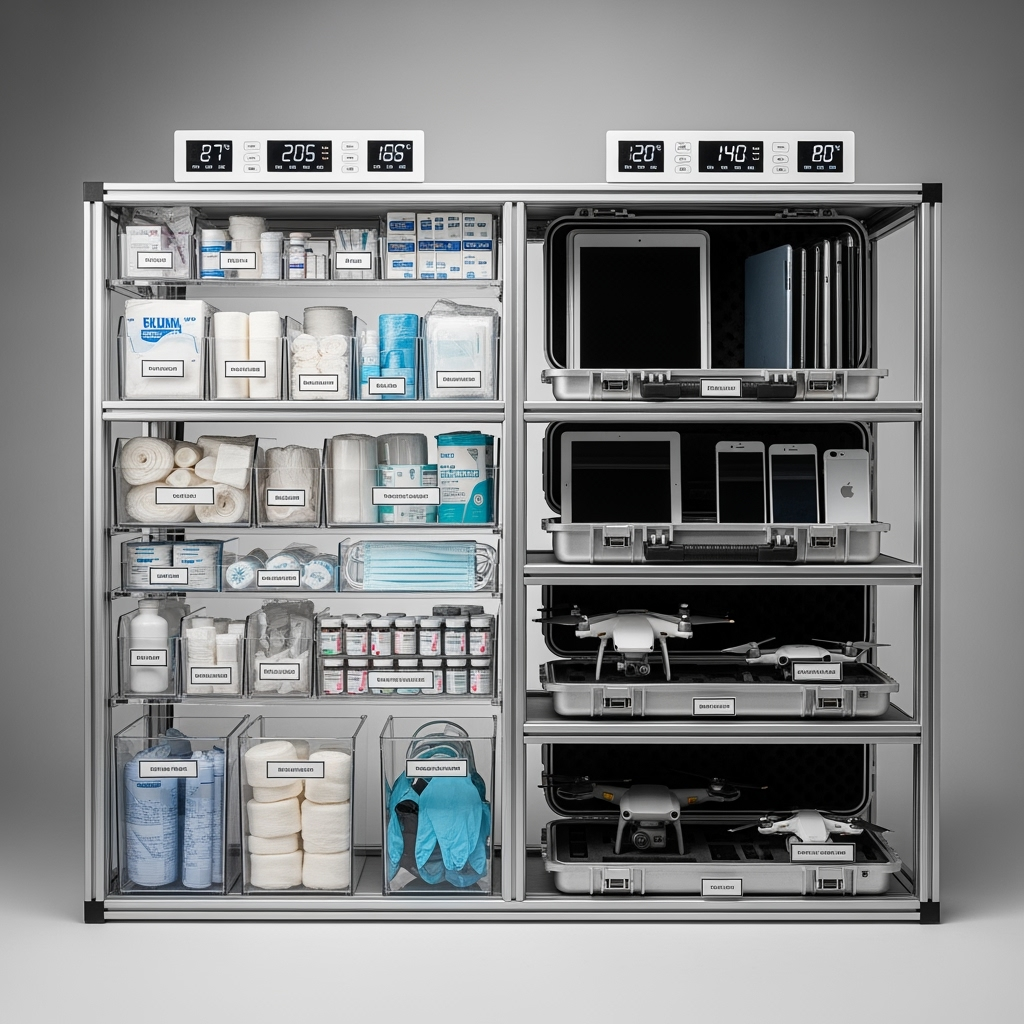
Leave a Reply